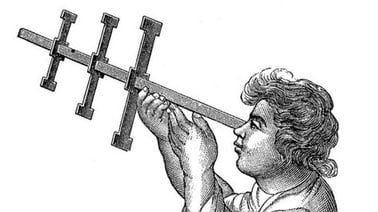- Level Foundation
- Ratings
- Duration 60 hours
- Course by Harvard University
- Total students 54,485 enrolled
-
Offered by

About
Humans have been navigating for ages. As we developed the tools and techniques for determining location and planning a route, navigation grew into a practice, an art, and a science. Navigational skill has long been tied to commercial, economic, and military success. However, the ability to predict when and where one will reach a distant destination is more than just a key to empire-building " it's often a matter of life and death.
Using video, text, infographics, and Worldwide Telescope tours, we will explore the tools and techniques that navigators have used, with a particular focus on the importance (and difficulty) of measuring longitude. Grounded in the principles of position, direction, speed, and time, we will learn the challenges of navigating without a GPS signal. We'll learn how the Age of Exploration and the economic forces of worldwide trade encouraged scientific progress in navigation; and how Jupiter's moons, lunar eclipses, and clockmakers all played a part in orienting history's navigators.
Centuries of progress in navigation have helped put humans on the moon and spacecraft on a comet. This course will explain how we got there, and how that progress enables you to get where you're going today.
What you will learn
- What exactly navigation is and how it works
- The importance of position, direction, and speed
- The many navigational tools of the 18th century
- How the motion of the sun and stars aids navigation
- Why longitude is so difficult to determine
- The historical context of navigation’s technical advances
- The role of chronometers and lunar distance
- The story of John Harrison and The Longitude Prize
Skills you learn
Auto Summary
Discover the fascinating evolution of navigation with "PredictionX: Lost Without Longitude." This foundational course, offered through edX, delves into the rich history of how humans have found their way across the globe, from ancient celestial navigation to modern satellite systems. Over a span of 60 minutes, you will be guided through the significant milestones and innovative methods that have shaped our ability to navigate the world. Whether you are a professional seeking to expand your knowledge or a beginner with a Starter subscription, this course provides an engaging introduction to the arts and humanities domain. Join us to uncover the incredible journey of navigation and its impact on human progress.

Alyssa Goodman


